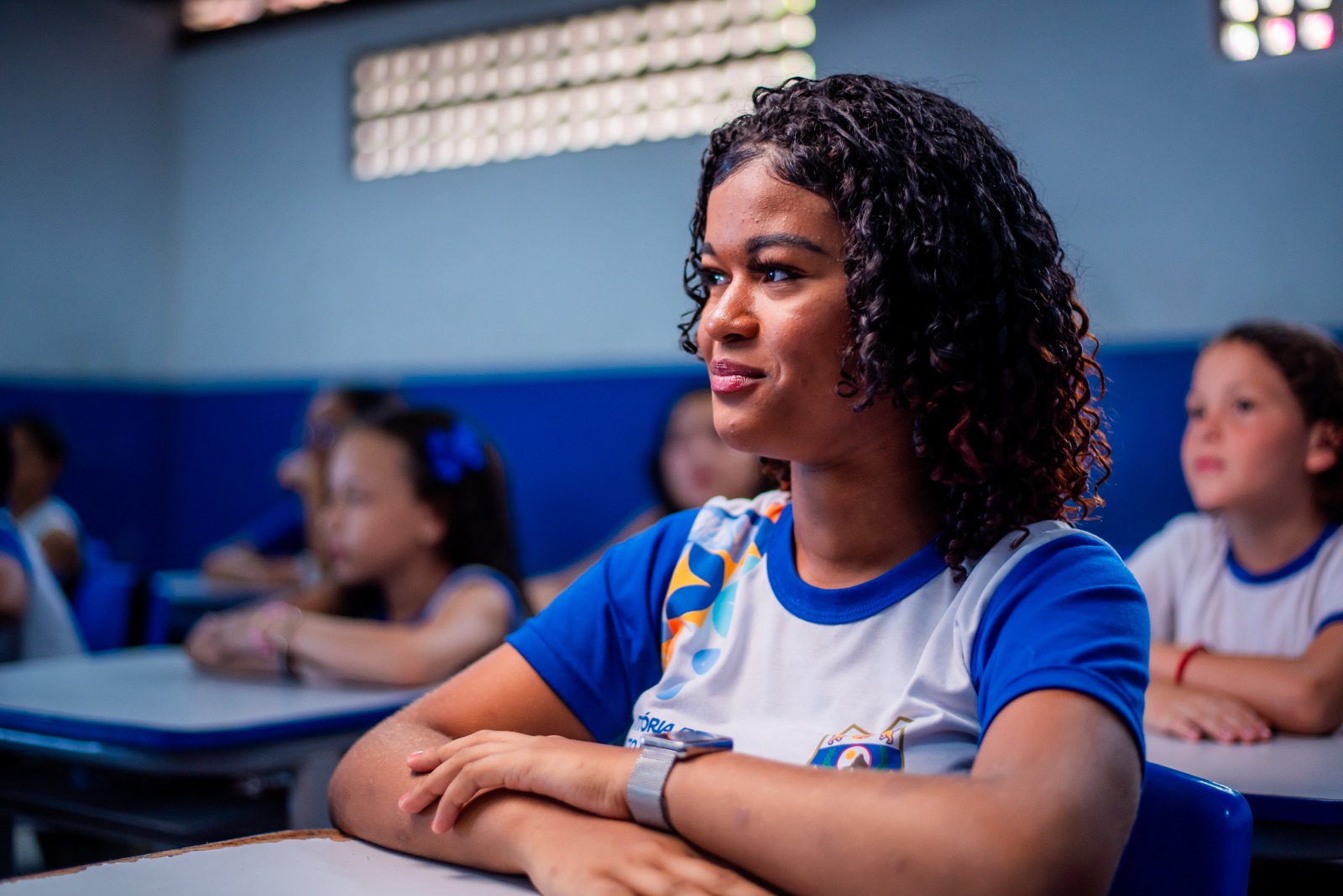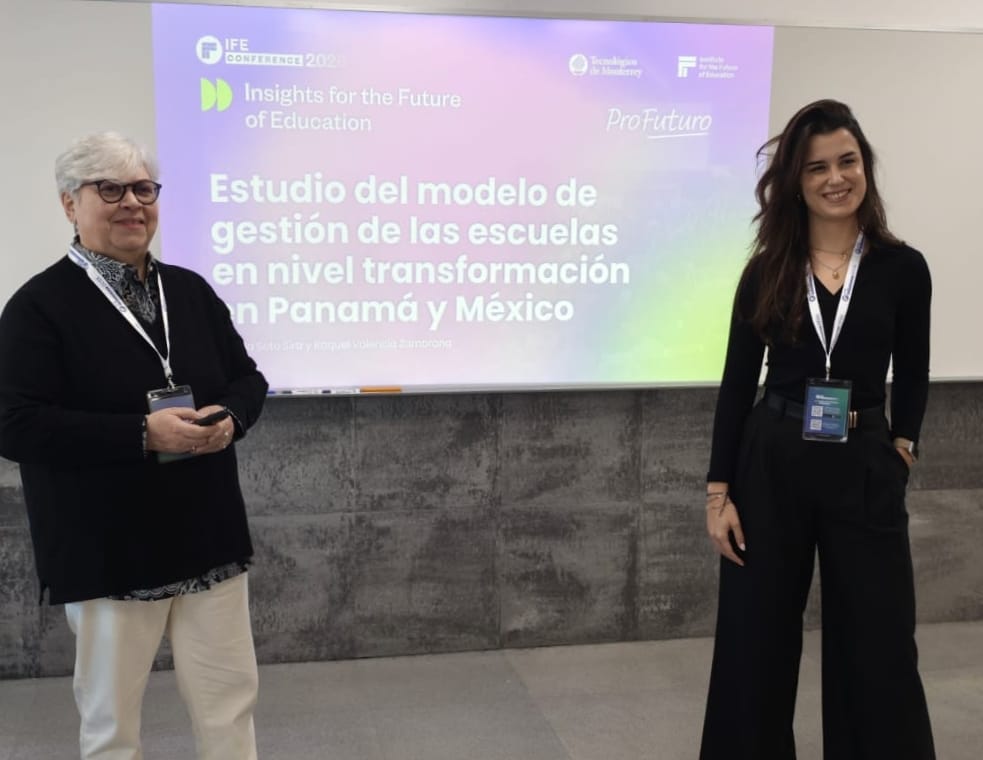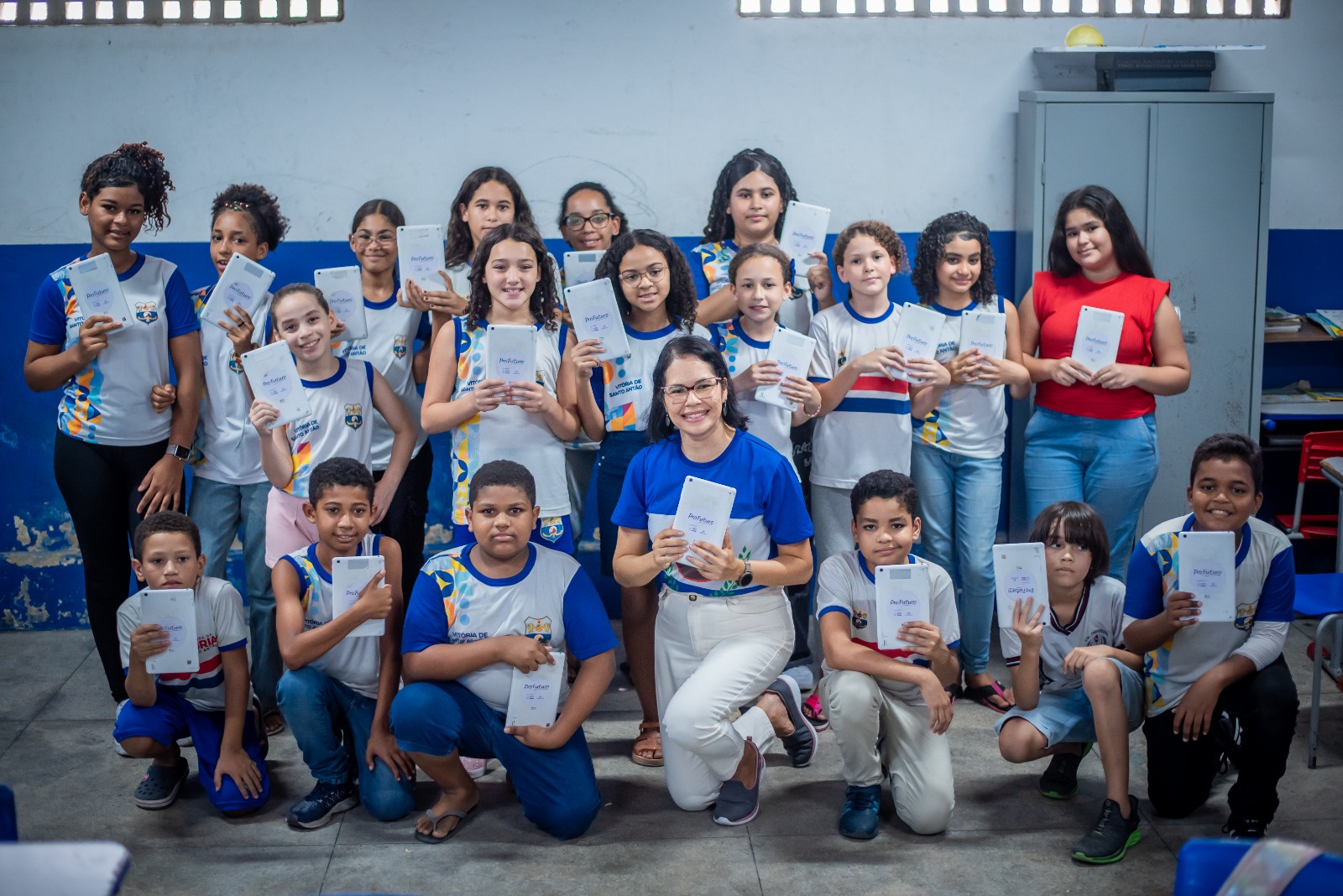Rawaa’s voice sounds calm on the other end of the phone. She says that preparations for the wedding of a relative have created an atmosphere of hustle and bustle in her house these days. ‘We have a similar culture when it comes to parties and weddings. I know that in Spain you love to dance, even at breakfast
time,’ she jokes. A connection problem forces her to switch off the camera. Rawaa lives in Bekaa, eastern Lebanon. She used to work as an English teacher. Today, she is one of the coaches of the ProFuturo programme.
According to UNHCR data, out of the more than 919,000 Syrian refugees in Lebanon, nearly 500,000 are school-age children. In recent years, Rawaa has put faces and names to many of them. In the last year, ProFuturo reached 22 schools in this region. Implementing a programme to narrow the education gap in this context is not straightforward. Nothing is. More than once, bombings have forced teachers and students to stay at home.
Rawaa’s work as a coach has many facets: trainer, coordinator, supervisor and, above all, colleague. She is in charge of training teachers in the use of the technology so that they can later implement it in the classroom, thanks to the devices provided by ProFuturo, which work without connectivity. ‘The situation we are going through is not easy for us, nor for the teachers, nor for the students. I think we, as Lebanese and Syrians, are somewhat used to conflict. Although we do our best every day, sometimes it is very difficult,’ he says.
Quite different, though not without complexity, was the situation Isack found himself in the first class he coached. It was in Dar es Salaam, Tanzania. There were, he says, up to 80 students in a single classroom. The programme landed in the country in 2016, the same year in which Profuturo began its journey. By 2024 it had reached almost a hundred schools. ‘I remember cases of students who could not write or spell their names, even though they were in school. Every time you gave them a tablet, they either spelt it wrong or struggled to use it. After one or two years in the programme, this changed completely,’ he says.
The challenges have also changed over the years. At the beginning, one of the biggest challenges was the language: ‘Here, of course, we speak English, but the local language is Swahili. In addition, some of the older teachers we were training were about to retire.’ Now that teachers and students are adapting
to the new methodologies, Isack can monitor the programme and its progress not only in person, but also virtually.
As a coach, he makes sure that all the gears of the project are working properly, that its objectives are clear and that it is sustainable from a budgetary viewpoint. He also tries to ensure that the teachers he trains stay motivated and that the content they will then pass on to their students is of high quality.
Another of his tasks is to get the local community involved, especially the pupils’ parents. ‘We meet them at the school so they can see what the programme is all about. Some contact us directly to ask questions. They have even set up a fund to buy new tablets,’ he adds enthusiastically. ‘It is the students
themselves who explain what they learn to their families. We believe that if parents see their children become involved, they get motivated too.
Rawaa is of a similar opinion. ‘The students love going to school, and that encourages me to help the teachers. In our school systems, education is very traditional: a blackboard, a pencil and a notebook. We work with children who don’t have phones or iPads, so it’s not only fun for them, but a learning opportunity as well. They reach their goals faster when they use technology.
In her assessment, she links the implementation of the programme to an increase in school attendance. ‘Since we’re in contact with refugee children in Lebanon, we know that some parents put them to work. And girls have fewer opportunities. But when we introduced ProFuturo in different camps, in different contexts, more students started attending classes. Parents began to understand that their children were learning something. So, in this context, we can say that technology brought more children into schools.’
Therefore, her final message is for the parents of these children, asking them to ‘try to widen horizons for them and encourage them to see the world differently, not just as a daily struggle for survival. I always tell them that ‘ProFuturo’ means ‘for the future.’






